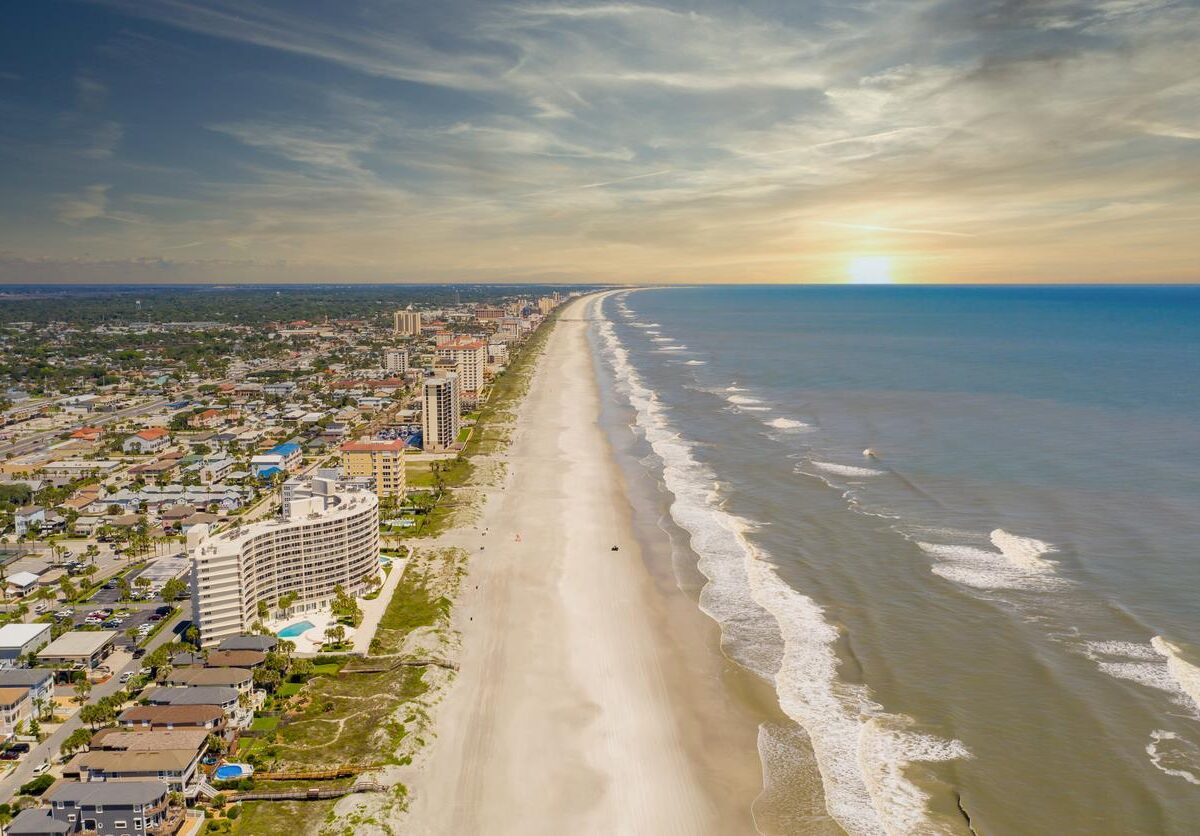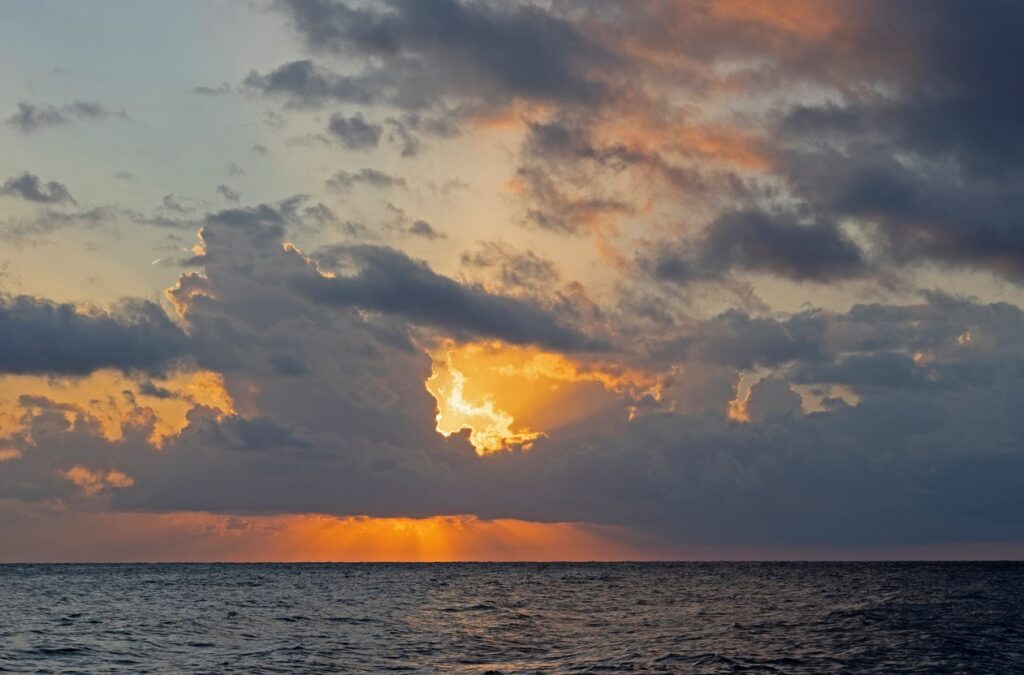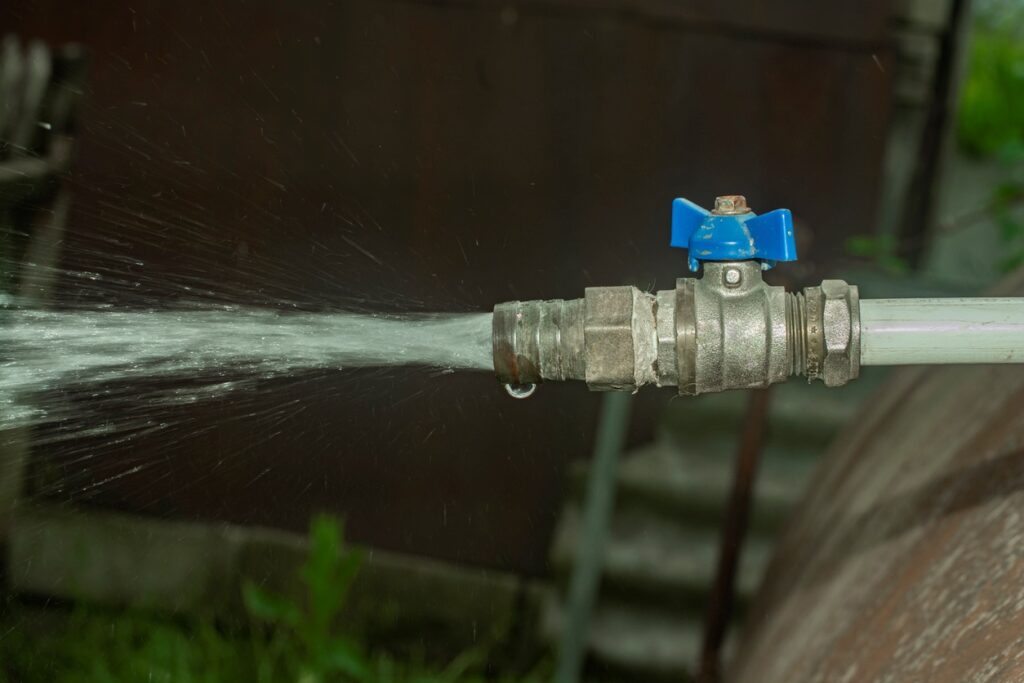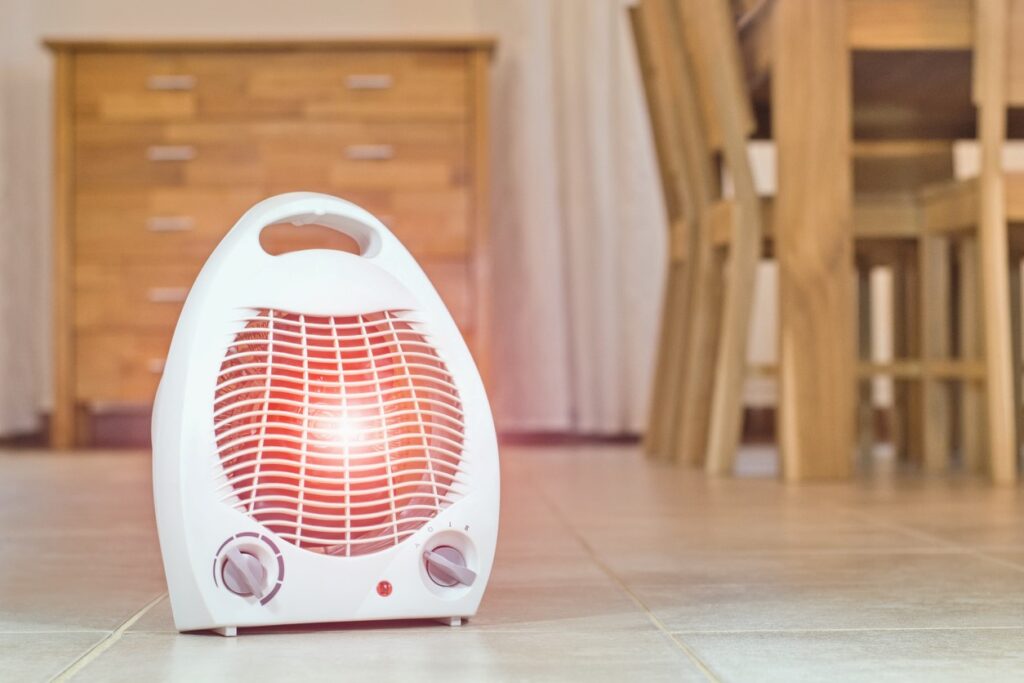How Cold Does Jacksonville Get in the Winter?

Jacksonville is known for its warm, pristine beaches and is the perfect place for a sunny getaway. But as the summer months slip away, the weather inevitably changes despite the River City’s tropical appearance. Your neighbors at Atlantic Self Storage are here to discuss the typical winter weather forecast for Jacksonville Beach, including average temperatures, occasional cold snaps, and what to expect as the sun sets in summer!
Average Florida Weather

They don’t call it the Sunshine State for nothing! Florida sits in a subtropical climate zone, which brings hot, humid summers and mild, wet winters. July is the hottest month on average, reaching around 82° F throughout the state. In January, temperatures in the south dip into the upper 60s, as northern Florida falls into the lower 50s. While the state is consistently wet, annual precipitation varies yearly, with an astonishing 72.9 inches of rain falling in 1947 compared to 40.3 inches in 2000, Florida’s driest on record.
The Florida Peninsula is no stranger to severe weather. Perhaps best known for its annual hurricane season, its Gulf Coast is particularly prone to tropical cyclones. Florida experiences the highest frequency of thunderstorms annually in the United States, especially during summer, due to the Bermuda High, which draws in moisture from the Atlantic Ocean. Aside from severe droughts striking at least once per decade, the peninsula has experienced several cold waves, though the number of freezing nights has decreased over time.
Jacksonville Beach Weather
The Jacksonville forecast doesn’t differ much from the rest of the state, experiencing sweltering summers and cool winters. Temperatures range between 46° F and 90° F. Unlike the Gulf Coast, Jacksonville doesn’t get as many direct hits from hurricanes due to its distance from the Gulf Stream. Jacksonville’s rainiest month is September, when 7.9 inches of rain pours onto the beaches.
While Jacksonville typically only exceeds 100° F around once a year, you may wonder: what was the lowest temperature in Jacksonville? On January 21, 1985, thermometers dipped to a shocking 7° F, nearly 100 degrees colder than the all-time high of 105° F recorded in 1942.
How To Prepare for Jacksonville Cold Weather

While the Jacksonville radar typically shows beautiful, sunny days, cold spells have been known to happen. If caught off guard, your home or business could sustain lasting damage, and your water supply may be compromised. Don’t let sudden freezes take you by surprise—see below for your expert advice on preparing for cold weather in Florida.
Cold Weather Safety Tips
- Protect your pipes. To prevent outdoor water pipes from freezing, wrap, drain, or leave them dripping slightly. If you have an inground sprinkler system, cover any pipes above the ground to help keep them from freezing.
- Watch your pets. Keep your pets inside as much as possible, and move beds away from windows. If they must stay outside, provide a warm, dry place to rest, plenty of food, and fresh, unfrozen water.
- Look out for one another. Children and older populations are the most vulnerable to illness and injury from the cold, so be sure everyone wears layers of loose-fitting, warm clothing outdoors.
- Check on your plants. Keep plants hydrated before cold weather arrives, and bring any potted plants that may not survive the cold indoors.
- Pack your vehicles. If your car breaks down in freezing weather, you need to be prepared. Keep blankets, coats, gloves, hats, and hand warmers in your car throughout the season in case the need arises.
Are Portable Heaters Safe?

Although convenient and effective, heating methods are a leading cause of home fires, causing 44,210 structure fires in the U.S. from 2016 to 2020, in addition to 480 civilian casualties. More so than freezing temperatures, heat statistically causes the most damage each winter.
Above all else, never use your oven, grill, or other fuel-burning appliances to heat your home, as this can lead to potentially fatal carbon monoxide poisoning. For this same reason, never warm your car in a closed garage.
When shopping for a space heater, choose an electric one equipped with safety features like automatic shut-off when tipped over. Be sure your smoke and carbon monoxide detectors are installed and working correctly. Before use, check for damaged cords and plugs, keep at least three feet away from flammable materials, and avoid using extension cords.
Keep Your Belongings Warm at Atlantic Self Storage
When winter arrives, don’t let your storage freeze in unprotected attics and garages. This can lead to warping, cracking, and breaking for temperature-sensitive items. Atlantic Self Storage offers climate-controlled storage in Jacksonville to help you have peace of mind if the weather starts to turn. Our storage units come in a range of sizes and varieties to suit whatever your needs may be.
Contact us today to discover your ideal storage unit at a Jacksonville storage facility near you!